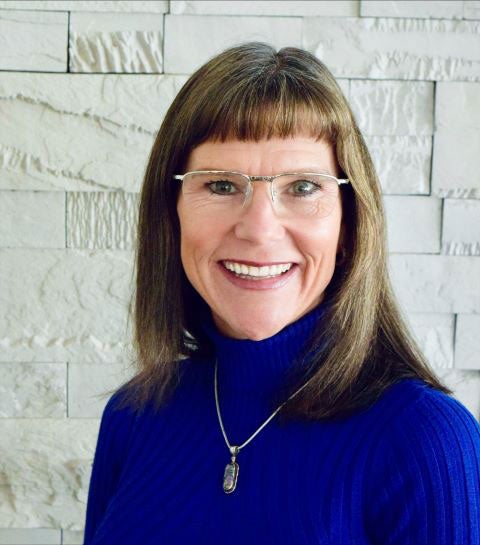
Boise State Clinical Associate Professor Jenni Gudapati has done a very unusual thing, and decided to tackle two large barriers, in the design of an entirely new Master in Population and Health Systems Management degree at Boise State University. American health care is in desperate need of transformation and payment reform and is searching for solutions and opportunities which can teach ways to succeed in value-based care. Higher education, which is not necessarily known for responsiveness or teaching relevance for the real world, Gudapti concluded, must answer the call and transition from traditional curriculum development and look for experts outside the college walls and into industry. Creating a partnership with the Healthcare Financial Management Association provided the financial and industry knowledge needed to fill the education gap.
College of Health Sciences Dean Tim Dunnagan and Associate Dean Lutana Haan were instrumental in the development and approval process of such a unique degree partnership. Their dedication to providing needed and groundbreaking quality education lit the path for Gudapati. In addition to her faculty position, Gudapati is the Value-Based Healthcare Program director and is a Registered Nurse, who received her MBA through Boise State’s Executive MBA Program. She is now also a PhD in Public Policy and Administration student.
“The fact that Boise State is recognizing the need and stepping up, I think, is huge,” Gudapati said. “We’re doing this and moving the needle. That alone just shows you that this is the real deal. What we’ve done at Boise State has not really been done before. It’s just been this really unique experience in higher education. I hope others can look and learn from this to partner and provide industry focused solution-providing degree programs .”
In early October, Boise State’s College of Health Sciences and Healthcare Financial Management Association learned that the program they started from scratch was named one of five founding programs for certification from the Commission on the Accreditation for Healthcare Management Education which then approved the rapidly emerging field as a need for accreditation. It’s the first recognition by CAHME for Boise State University, and provides an exciting opportunity, states Gudapati. Further, she has been named to the quality standards committee that will set parameters for other schools seeking accreditation in population health management. The commission recognition puts Boise State on the map with a select group of known change-maker universities, which is meaningful for students, the college, the university – and hospitals, health systems, clinics, medical professionals and thousands and thousands of patients.
Building from the ground up
Gudapati, who has worked during her career as an emergency room, critical care, and home health nurse, in health care policy and legislation, and for a telehealth software company, saw in education what she saw in health care: That the road to success might come not from cobbling solutions on top of an existing bricks-and-mortar structure, but by building an entirely new thing from the ground up.
“By shifting care and payment focus directly to health risk prediction and population health, we can maximize patient outcomes and transition to care models that reduce costs by decreasing emergent medicine through focusing on prevention and patient centered care delivery,” Gudapati states.
Faculty members for the new master’s are practicing health care executives and policy-makers, many on the frontlines of the national Patient Protection and Affordable Care Act and its implementation. It’s unique in another way as well, in that it is Boise State’s first partner degree program, with the Healthcare Financial Management Association.
“Our program is extremely innovative,” she said. “It’s an entirely different way to teach.”
Learn about the history of value-based healthcare at Boise State